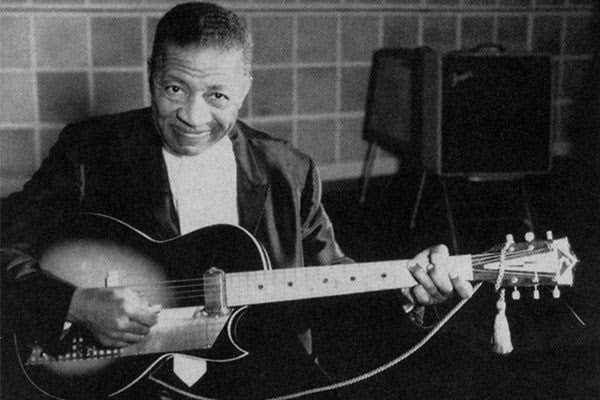Lonnie Johnson, a legendary figure in the realm of blues music, was born on February 8, 1899, in New Orleans, Louisiana. He would go on to become one of the most influential guitarists and singers of his time, leaving an indelible mark on the genre.
Johnson’s musical journey began at a young age when he picked up the guitar and started performing in the streets of New Orleans. His natural talent and dedication quickly caught the attention of local musicians, and by his teenage years, he was already making a name for himself in the vibrant music scene of the city.
In the 1920s, Johnson’s career took a significant turn when he moved to St. Louis, Missouri, where he began recording for the Okeh Records label. It was during this time that he pioneered a style of guitar playing that combined intricate fingerpicking with soulful melodies and expressive vocals. His innovative approach to the instrument would influence countless musicians in the years to come.
One of Johnson’s most famous recordings from this period is “Guitar Blues,” which showcased his virtuosic guitar skills and emotive singing. The song became an instant hit and solidified his reputation as a master of the blues.
Throughout the 1930s and 1940s, Johnson continued to record prolifically, releasing a string of successful singles and albums. He collaborated with some of the era’s top musicians, including Louis Armstrong and Duke Ellington, further cementing his status as a musical pioneer.
Despite his immense talent and influence, Johnson’s career faced numerous challenges, including racism and the economic hardships of the Great Depression. However, he persevered through these difficulties, remaining dedicated to his craft and continuing to produce groundbreaking music.
In the 1960s, Johnson experienced a resurgence in popularity as the blues saw a revival among young audiences. He toured extensively and performed at festivals and concerts around the world, introducing his music to a new generation of fans.
Lonnie Johnson’s legacy extends far beyond his own recordings; his innovative guitar playing and soulful singing laid the foundation for the development of blues, jazz, and rock music. He remains a towering figure in the history of American music, revered for his unparalleled talent, creativity, and enduring influence. Lonnie Johnson passed away on June 16, 1970, but his music lives on, inspiring generations of musicians to follow in his footsteps.


Comments are closed